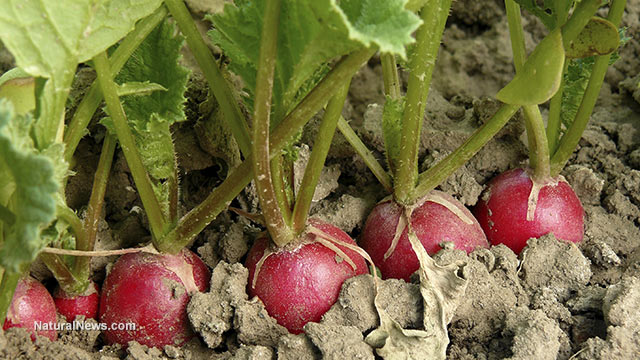
Advertisement
Fresh fruits and vegetables are the best sources of vitamins and minerals that help keep you healthy and strong. But did you know that there’s a list of fruits and vegetables that you need to avoid if you don’t want to feed your family produce that’s full of harmful chemicals?
Every year the Environmental Working Group (EWG) releases the Dirty Dozen list to warn consumers about the 12 foods that are commonly exposed to pesticides and other chemicals.
However, this doesn’t mean that you need to completely remove these foods from your diet. You just need to be vigilant when shopping and buy organic to ensure that you prepare and serve food that won’t do more harm than good.
2019’s Dirty Dozen list
The list below includes produce that’s full of pesticides.
Sometimes, the fruits don’t have skin that’s removed before you eat them, like peaches. Alternatively, the vegetables have thin skin, such as potatoes, that can be easily penetrated by pesticides and other chemicals.
When you’re buying groceries, remember that the foods below should only be consumed if they’re fresh and organic:
- Strawberries
- Spinach
- Kale
- Nectarines
- Apples
- Grapes
- Peaches
- Cherries
- Pears
- Tomatoes
- Celery
- Potatoes
Clean 15
Don’t despair. EWG also released the Clean 15 list of produce that’s considered the cleanest based on test results for pesticide exposure.
- Avocados
- Sweet corn
- Pineapples
- Sweet peas (frozen)
- Onions
- Papayas
- Eggplants
- Asparagus
- Kiwis
- Cabbages
- Cauliflower
- Cantaloupes
- Broccoli
- Mushrooms
- Honeydew melons
Both lists include fruits and veggies common in the average American diet, but one thing is clear. Unlike the Dirty Dozen, most of the items in the Clean 15 list have inedible peels that are removed before the food is prepared, like avocados or honeydew melons.
Tips for avoiding pesticides and harmful chemicals in your food
Follow the tips detailed below to ensure that the food you buy is pesticide-free and safe to eat.
- Regularly check EWG’s Dirty Dozen and Clean 15 lists. If money is tight, choose to go organic for the items in the Dirty Dozen list.
- Only buy certified organic food. Organic produce may cost more, but if you have the budget, spare no expense when it comes to your food. Items with the USDA organic seal are usually 95% pesticide-free.
- Wash produce thoroughly. Even if you buy organic, it doesn’t hurt to take the extra effort to wash produce. Don’t use soap, though. Dish soap residue is worse for your health than pesticides. Use cold water and a bit of salt to cleanse fruits and vegetables. Washing vegetables with cold water can get rid of at least 80% of contaminants.
- Peel your produce. Not all fruits and vegetables have a peel that’s tough enough to protect them from pesticides. To ensure that your food is pesticide-free, peel bananas and oranges.
- Grow fruits and vegetables in your backyard. It takes hard work to cultivate plants, but this is one of the best ways to prevent pesticide exposure.
What’s the best way to wash produce?
According to a study published in the Journal of Agricultural and Food Chemistry, a simple baking soda and water mixture is one of the best ways to remove pesticide residue from produce.
For the study, researchers used a very weak solution that was made by combining an ounce of baking soda with 100 ounces of clean water. Soak fruit and veggies in the mixture for 12 to 15 minutes to get rid of pesticides.
Scrub the produce with a brush, then rinse before preparing your food.
Avoid the items on the Dirty Dozen list and buy organic or grow your own food to protect your loved ones from chemically-laden fruits and vegetables.
Sources:
Advertisements







